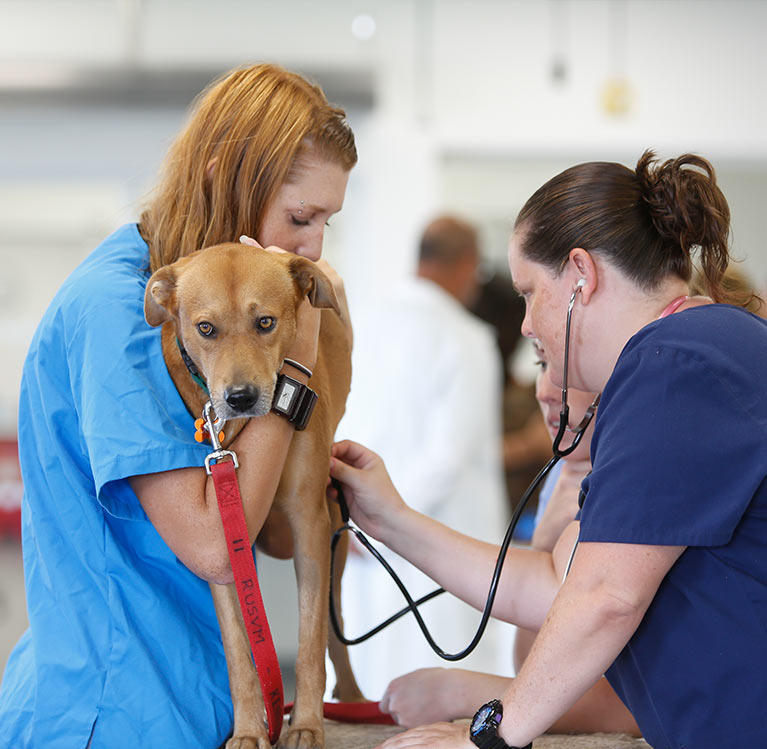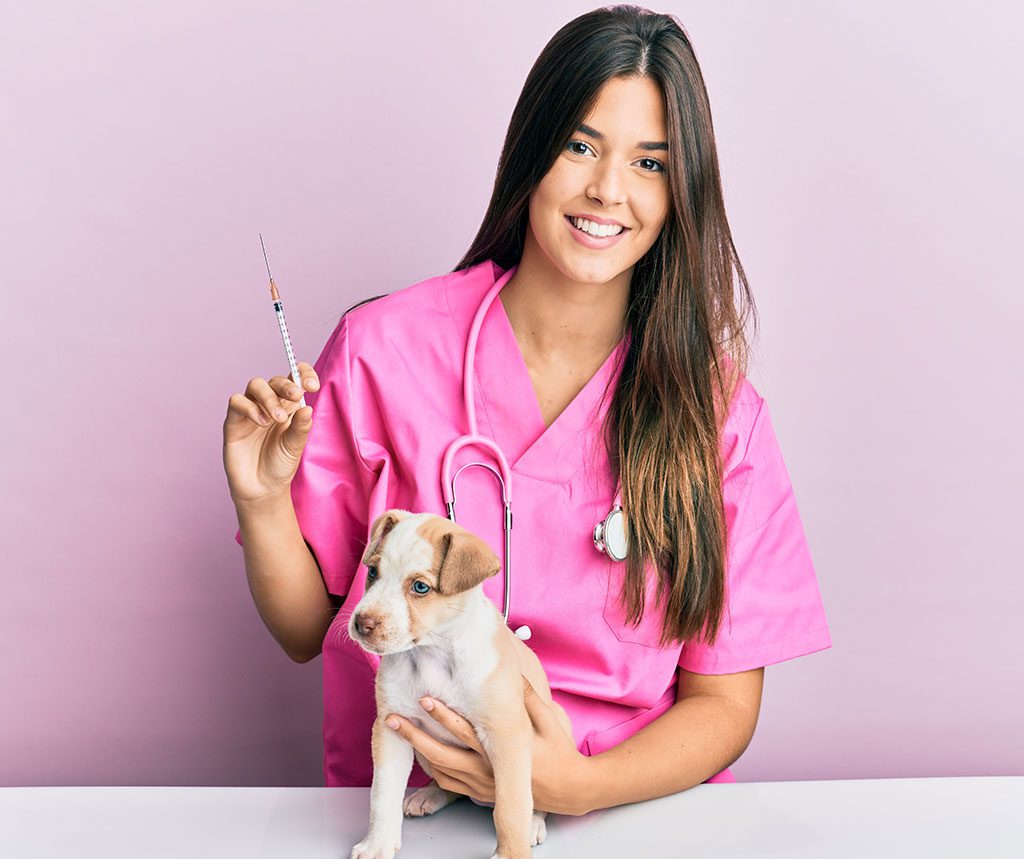Inoculation Guidelines From Your Relied On Vet
Vaccination standards provided by your trusted vet play a vital function in securing your pet's health and well-being. Additionally, addressing common misconceptions bordering injections can even more improve animal owners' confidence in these preventative measures.

Significance of Inoculations
Vaccinations play a critical duty in protecting animals against a variety of preventable illness. By promoting the body immune system to recognize and deal with particular microorganisms, vaccines dramatically lower the incidence of transmittable conditions that can impact a family pet's wellness and long life. Not only do vaccinations shield individual pets, but they likewise add to herd immunity, therefore minimizing the general prevalence of conditions in the animal populace.
Timely vaccinations assist to mitigate the spread of conditions such as rabies, parvovirus, and distemper, which can have serious effects for both family pets and people. Vaccinations are commonly a requirement for boarding centers, brushing services, and pet dog parks, making them essential for those that desire to socialize their family pets.

Core Vaccines for Pet Dogs
While the particular inoculation needs of family pets can vary based on individual variables, core injections are globally recommended to shield against the most severe and typical diseases (Vet Enterprise). Core vaccines are those regarded vital for all pets, despite their lifestyle or geographical area, as they secure versus extremely transmittable and potentially deadly ailments
For pets, the core injections include those for canine distemper, parvovirus, adenovirus (liver disease), and rabies. Canine distemper is a viral disease that impacts the respiratory system, intestinal, and nervous systems. Parvovirus is recognized for triggering severe gastrointestinal ailment, specifically in pups. Adenovirus can lead to liver disease, while rabies is a zoonotic illness that postures a threat to both animals and humans.
In cats, core injections encompass feline panleukopenia, feline calicivirus, feline herpesvirus (rhinotracheitis), and rabies. Feline panleukopenia is a very contagious viral illness that impacts the body immune system and intestinal tracts. Calicivirus and herpesvirus are significant factors to top respiratory infections in cats, while rabies remains a vital issue for public health and wellness.
Seek advice from your vet to ensure your animals get their core vaccinations on time.
Non-Core Vaccines Explained
Non-core vaccines are customized to attend to specific threats connected with a pet dog's way of living, setting, and exposure to certain illness. Unlike core injections, which are widely recommended for all pet dogs, non-core injections are thought about based on specific conditions. These injections are particularly important for pet dogs that may experience unique virus due to their geographical area, traveling practices, or tasks.
Examples of non-core vaccines consist of those for Bordetella bronchiseptica, which is linked to kennel coughing, and Lyme disease, brought on by ticks. Animals that frequently engage with other animals, such as those in boarding centers, canine parks, or grooming environments, might gain from Bordetella vaccination. If you live in an area where Lyme illness is widespread, vaccinating versus this condition can be a prudent option for outdoor-loving dogs.
Other non-core vaccinations may include those for leptospirosis, canine flu, and feline leukemia, depending on the certain risk elements existing. It is vital to have a detailed discussion with your vet about your family pet's lifestyle and the prospective demand for these vaccines, making sure a tailored inoculation technique that finest protects your fuzzy buddy.
Inoculation Set Up Summary

As pet dogs develop, it is essential to follow the suggested booster inoculations. Emergency Vet. For grown-up pets, core vaccines are usually offered every one to three years, depending on the certain vaccination and neighborhood regulations. Non-core vaccines may be encouraged based upon lifestyle factors and regional disease occurrence, requiring a customized technique
Normal vet exams are essential for updating vaccination routines. Your veterinarian can offer support on one of the most ideal booster shots for your pet dog, considering age, health condition, and ecological dangers. By remaining proactive and informed, pet owners can ensure their fuzzy friends receive prompt Discover More Here and effective vaccinations, consequently safeguarding their health and wellness and wellness throughout their lives.
Common Misconceptions About Vaccinations
Misconceptions regarding family pet inoculations can bring about complication and reluctance amongst pet dog owners concerning the immunization procedure. One common misconception is that vaccines are unnecessary for indoor pets. While it holds true that interior pet dogs face lower threats, they are not totally immune to diseases, as microorganisms can be introduced through various methods, consisting of human clothing and other animals.
Another mistaken belief is that vaccines can create the illness they aim to stop. Actually, a lot of vaccines consist of suspended or undermined pathogens, which can not create illness in healthy and balanced pets. Some animal owners additionally believe that their family pets should not be immunized if they are currently healthy and balanced; however, inoculations are a proactive procedure that assists avoid the onset of ailment.
Additionally, several pet owners are afraid that vaccines will cause lasting wellness difficulties. While negative effects can occur, they are momentary and normally moderate. The benefits of vaccination-- safeguarding animals from possibly serious illness-- far surpass the risks. Recognizing these common myths is vital for accountable pet ownership and making certain the health and security of your hairy companions. Always consult your veterinarian for accurate information tailored to your animal's specific demands.
Verdict
In recap, adherence to vaccination guidelines is important for guaranteeing the health and durability of pets. Core vaccines supply necessary security versus severe diseases, while non-core vaccines resolve specific threats based upon specific lifestyles. Developing a detailed vaccination schedule, along with routine veterinary check-ups, helps with ideal anchor health and wellness management. Resolving common misconceptions bordering vaccinations further reinforces the value of informed decision-making in pet dog treatment. Inevitably, a positive strategy to vaccinations is important for keeping pet dog well-being.
Not just do inoculations secure individual pets, but they additionally add to herd immunity, therefore decreasing the overall frequency of conditions in the pet dog population.
False impressions about family pet vaccinations can lead to confusion and reluctance among animal owners pertaining to the immunization process. While it's real that indoor pet dogs deal with lower dangers, they are not totally immune to illness, as virus can be presented through different means, including human garments and various other pet dogs.
Some animal proprietors likewise believe that their pet dogs ought to not be vaccinated if they are currently healthy and balanced; nevertheless, inoculations are a proactive action that aids protect against the onset of ailment.
The advantages of inoculation-- securing animals from potentially life-threatening diseases-- much surpass the risks.